Less than two weeks after making her latest pitch for “school choice,” Governor Kim Reynolds got what she wanted. The Republican-controlled legislature approved the governor’s expansive school voucher program, by 55 votes to 45 in the Iowa House and 31 votes to 18 in the Senate.
The state of play in the lower chamber was in doubt as recently as a few days ago. Reynolds had only one public event on her schedule last week, but she held private meetings with more than a few House Republicans who either opposed her plan or were on the fence about approving an unlimited new entitlement for families choosing private schools. According to the fiscal analysis by the nonpartisan Legislative Services Agency, which does not include all expenses, the proposal will cost Iowa’s general fund an additional $878.8 million over the next four fiscal years, with costs reaching about $345 million during the fourth year.
House leaders changed the chamber’s rules to keep the voucher bill out of the Appropriations and Ways and Means committees, where there might not have been enough Republican support to send the legislation to the floor. Senate leaders used a procedural trick to prevent any Democratic amendments from being considered.
No GOP lawmakers spoke against the bill during the floor debates in either chamber. Three Republican holdouts (State Representatives Chad Ingels, Brian Lohse, and Tom Moore) indicated during the five-hour House session that they would like to be recognized by the chair. But each turned off their light at some point before being called on to speak.
The many Democrats who spoke raised numerous objections, ranging from the plan’s astronomical cost to the devastating impact on public school budgets to the reality that private schools won’t accept many students, especially those with disabilities, and will exclude children from LGBTQ households. Forthcoming Bleeding Heartland posts will discuss some of those problems in more detail.
This piece focuses on the Republicans who voted against the bill despite pressure from their own party’s leadership. Before the 2022 primaries, Reynolds campaigned against several House Republicans who had not supported earlier versions of the school voucher plan. (Most lost those races.) She may seek retribution in 2024 against some GOP lawmakers who defied her this week.
I will also be watching to see whether some who voted no lose their positions on influential legislative committees.
IOWA HOUSE: NINE REPUBLICANS VOTED NO
Some of the Republican opponents represent areas with few to no private schools. Others have private schools within their district or nearby. Common Good Iowa created this map, showing the number of private schools located in each county during the 2021/22 academic year.
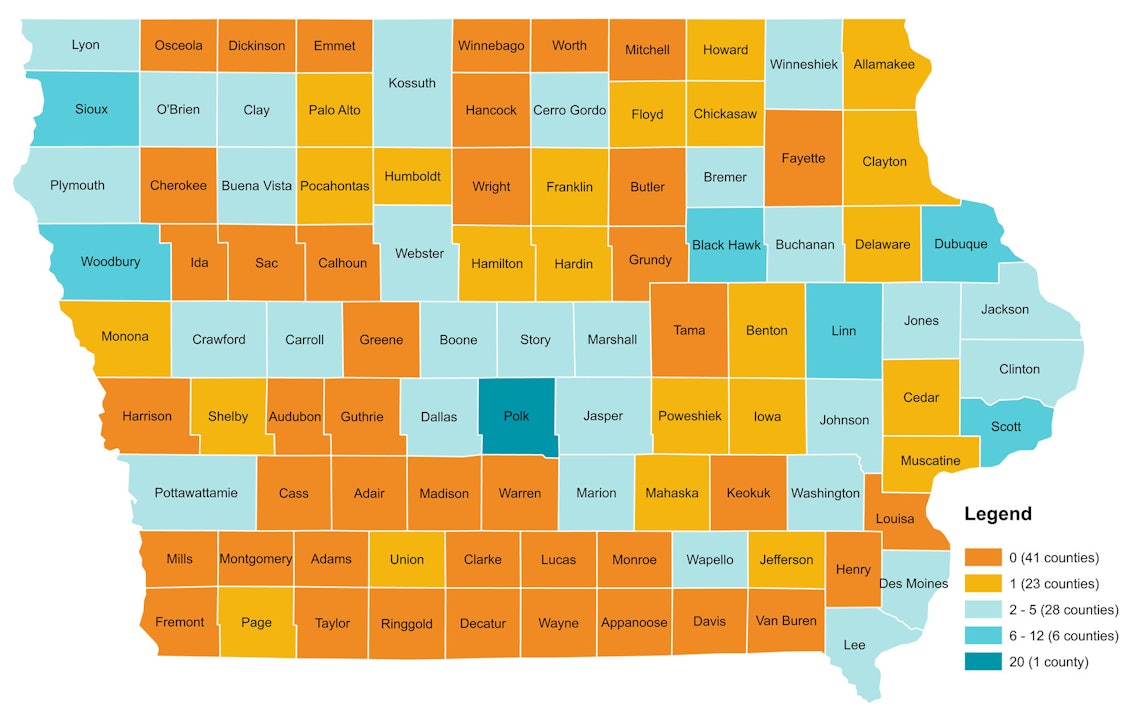
Michael Bergan was first elected in 2016 and represents House district 63, covering Winneshiek and Howard counties, and part of Fayette County.
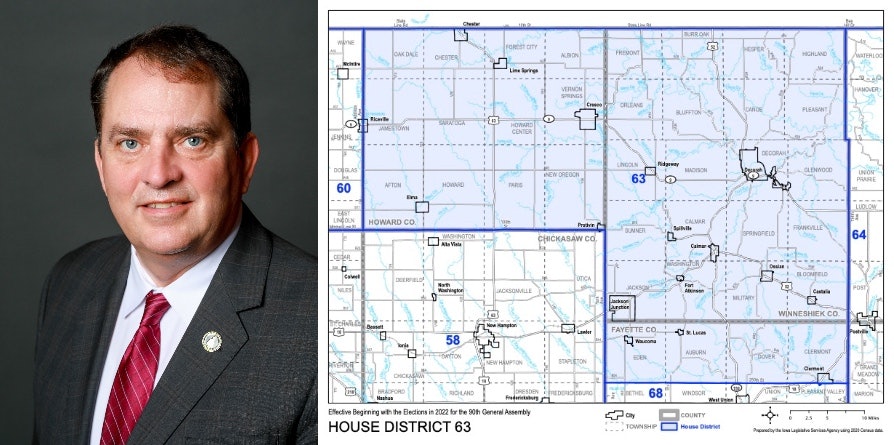
Bergan’s district includes a few private schools, and he’s not opposed to school choice on principle; he praised last year’s voucher plan for being “targeted and narrow.” But he told constituents at a January 21 district forum that he would vote against the current proposal, in part because most of the state funds will go to families that already send their children to private schools.
Bergan chairs the House Appropriations Committee’s subcommittee on Administration and Regulations and also serves on Health and Human Services, Labor and Workforce, and State Government committees.
Brian Best was first elected in 2014 and represents House district 11, covering Carroll and Audubon counties and portions of Shelby and Pottawattamie counties.
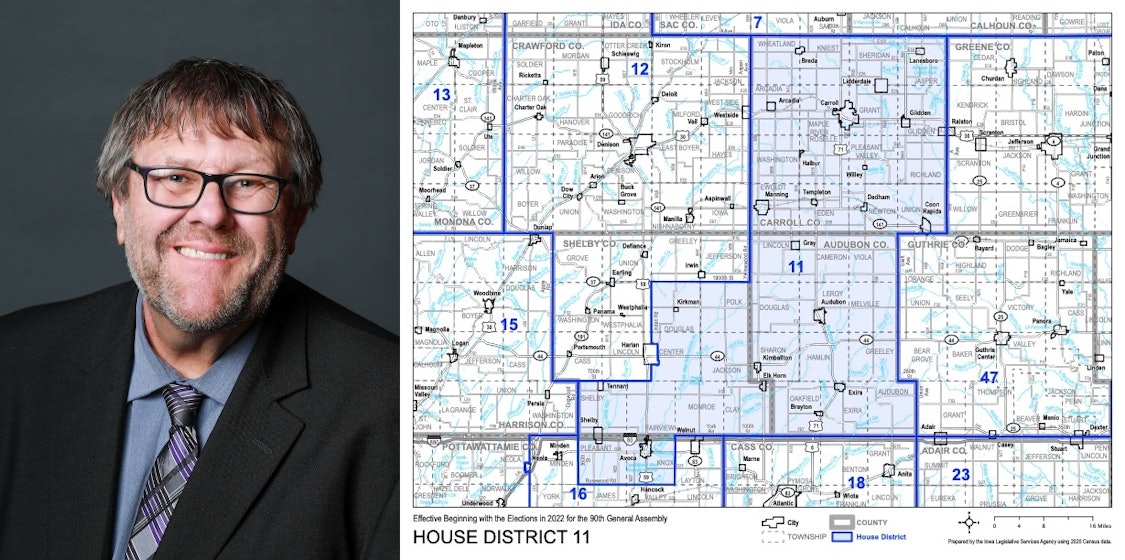
Carroll has a long tradition of Catholic schools alongside the public schools, and Shelby County has a private school as well. Best has publicly opposed voucher bills for the past three years. He did not face a GOP primary challenger in 2022.
Speaking in February 2021, when the pending bill was limited to a small number of low-performing school districts, Best said he was worried about a “slippery slope” of more state funding for private schools. The Carroll Times Herald reported at the time, “Best, an alum of Glidden-Ralston High School, said he is concerned about the ‘dwindling’ number of students in rural public schools and wants to protect those educational institutions, which he sees as essential to preserving small-town life in Iowa.”
Best chairs the House Transportation Committee and also serves on the Commerce, Health and Human Services, Labor and Workforce, and Ways and Means committees, as well as the Appropriations subcommittee on Transportation, Infrastructure, and Capitals.
Jane Bloomingdale was first elected in 2016 and represents House district 60, covering Mitchell and Worth counties and parts of Floyd and Cerro Gordo counties. There are a handful of private schools in Floyd or Cerro Gordo, but none in Mitchell and Worth.
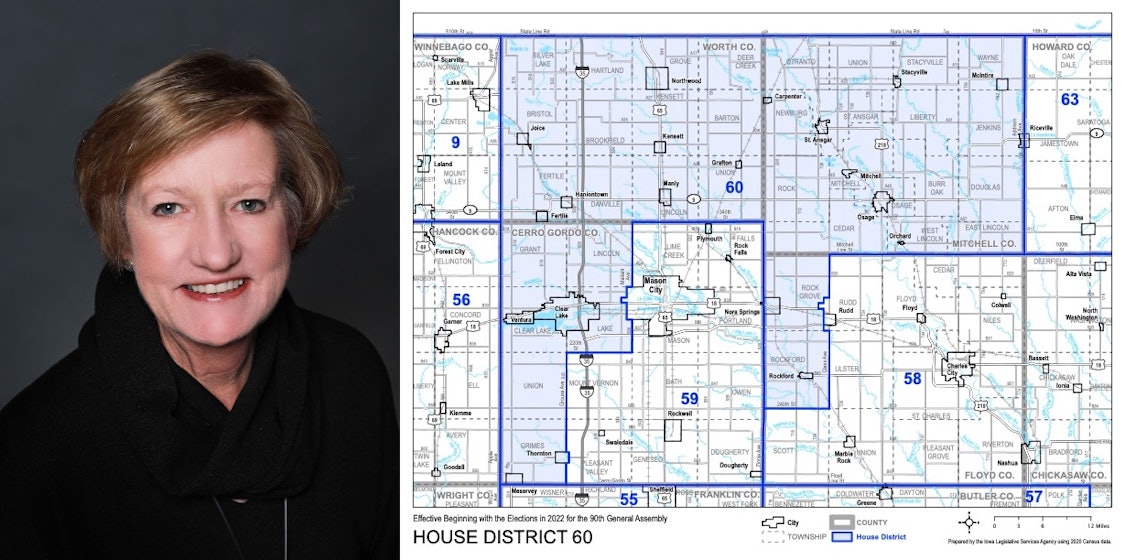
Bloomingdale was the only Iowa House Republican to survive a 2022 primary challenge despite having opposed school vouchers and some anti-abortion legislation. For some reason, Reynolds did not publicly endorse her GOP opponent, Deb Hild. But outside groups backing a “school choice” agenda spent money against Bloomingdale before the primary.
Bloomingdale chairs the House State Government Committee and also serves on the Commerce, Local Government, and Ways and Means committees.
Chad Ingels was first elected in 2020 and represents House district 68, covering Fayette County and parts of Black Hawk and Buchanan counties. Fayette County has no private schools, but some are within striking distance for constituents who live in Black Hawk or Buchanan counties.
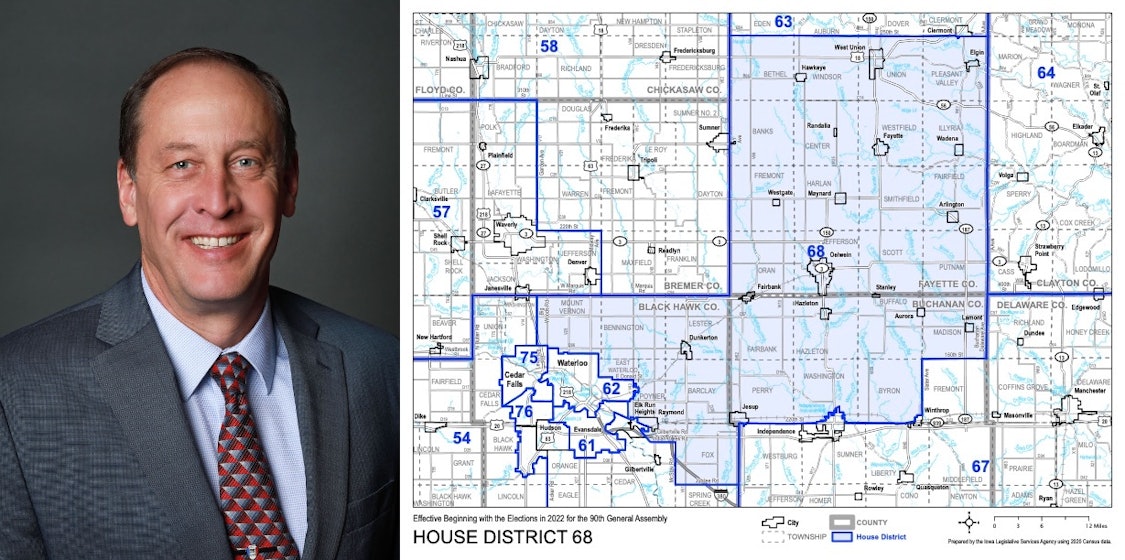
Ingels served on the West Central Community School Board for more than 20 years, including nearly a decade as board president. Although he has opposed voucher bills each year he’s served in the Iowa House, he did not face a GOP primary challenger in 2022.
While many House Republicans avoided taking a public position on the governor’s top priority, Ingels explained the six reasons he opposes the bill in his most recent weekly newsletter.
- “Public schools have many reporting requirements to assure that funds are being used in the taxpayers’ best interest,” but there’s no similar accountability for how private schools use funds.
- A provision of the bill provides millions to (mostly urban) public school districts for students within their boundaries who attend private schools, but many rural districts would receive no such funding.
- “Iowa has as many or more choices available for parents than any other state with public school, open enrollment, private school, charter school, home school, dual enrollment and now, increasing online school options.”
- The bill would allow school districts to use one-time funds for some ongoing expenses.
- The plan fails “to focus on closing the achievement gap” between schools.
- Education savings accounts would cost more than $300 million a year, and that money could be put to better use by funding programs for “thousands of cognitively and physically disabled kids, teenagers and adults that are approved for services to help improve their lives and the lives of their families,” but are stuck on waiting lists.
Ingels chairs the House Veterans Affairs Committee and also serves on the Agriculture, Economic Growth and Technology, and Education committees, as well as the Appropriations subcommittee on Agriculture and Natural Resources. Earlier on January 23, he was one of five House Republicans to vote against the rules package, which allowed the voucher bill to bypass the tax-writing and spending committees.
Brian Lohse was first elected in 2018 and represents House district 45, covering much of northern and eastern Polk County. Although he was known to be a holdout on the voucher bill last year, he did not face a GOP primary challenger.
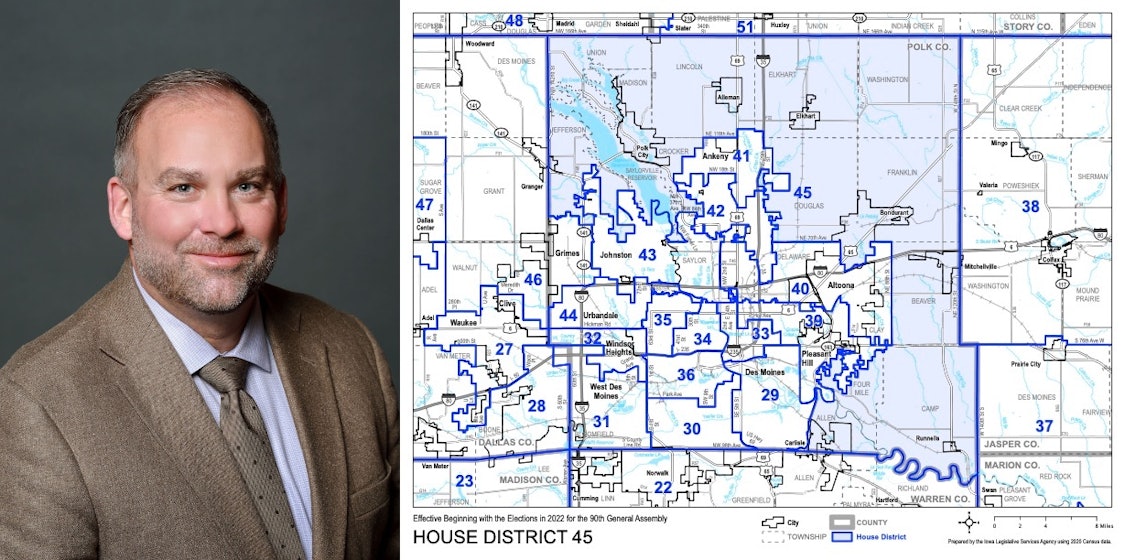
Polk County has the largest concentration of private schools in Iowa, and Lohse surely has many constituents who would benefit from taxpayer-funded tuition for their children already attending parochial schools.
Lohse addressed the education savings accounts plan near the bottom of his latest legislative newsletter: “I have been vocal in my opposition to it and the reasons why, including the fiscal impact that we know of, but no one in the Capitol seems to want to talk about, which is $918 million in the first four years alone.” He linked approvingly to Ingels’ newsletter, which “summed up perfectly” the case against the bill. “All I can say is, Ditto.” Like Ingels, he was one of five House Republicans to vote against the rules package, which put the voucher bill on a fast track.
Lohse chairs the Appropriations Justice Systems subcommittee and also serves on the Commerce, Health and Human Services, and Judiciary committees.
Gary Mohr was first elected in 2016 and represents House district 93, covering Bettendorf and some other parts of Scott County. The Quad Cities area has a well-established private school system.
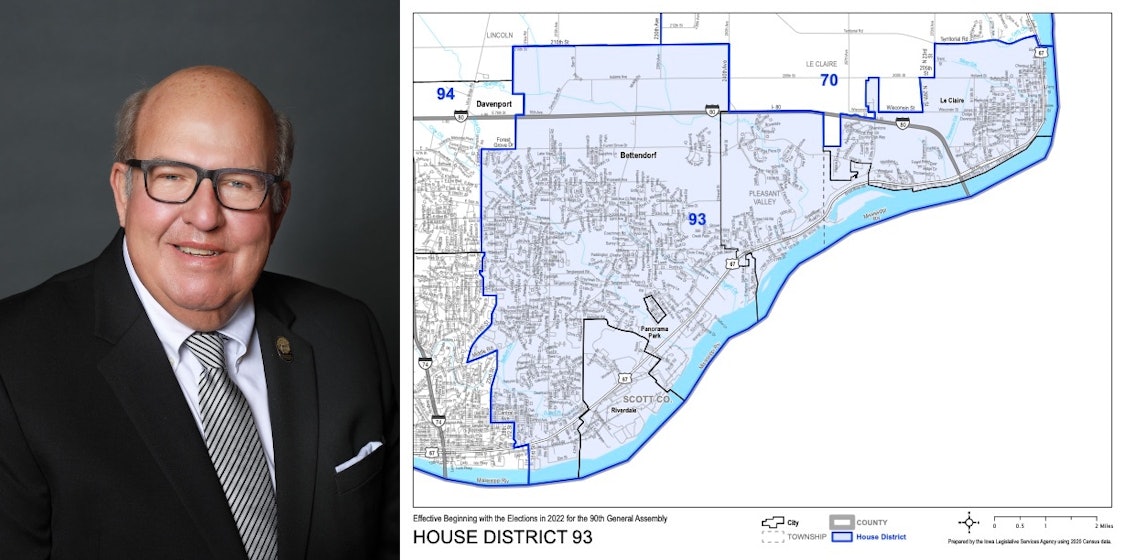
Mohr was a known opponent of last year’s “school choice” bill but did not face a 2022 primary challenger. He told Sarah Watson of the Quad-City Times that he had concerns about the cost of the governor’s new bill and the possible threat to private schools’ independence once they accept taxpayer dollars through education savings accounts.
Mohr chairs the House Appropriations Committee—he was absent for the vote on the rules package that allowed the voucher bill to bypass that panel—and also serves on the Commerce and Public Safety committees.
Tom Moore was first elected in 2015 and represents House district 18, covering Cass and Montgomery counties (which have no private schools), plus most of Page County (which has one).
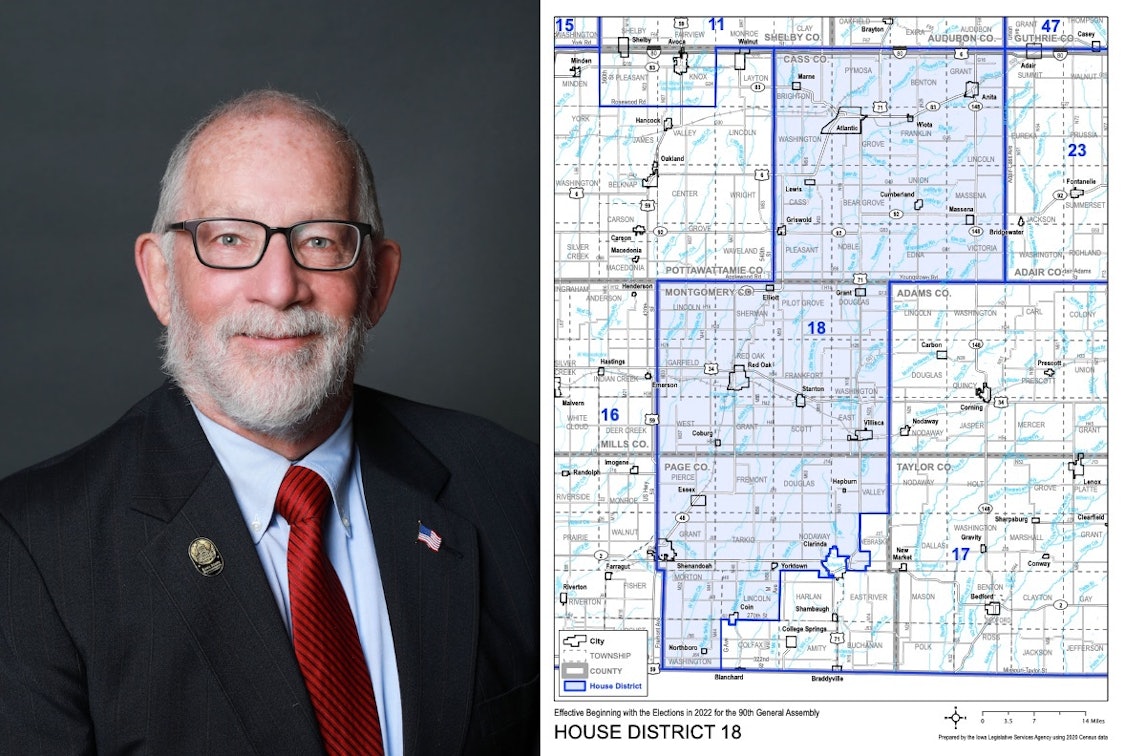
Moore was a public school teacher for more than 30 years and served on a school board for seven. He opposed earlier versions of the voucher plan but did not face a 2022 primary challenger. After the January 23 vote, he told reporters that he represented the majority of his constituents, who don’t support the bill. He also cited concerns about the fiscal impact and lack of accountability.
Rep. Tom Moore, R-Griswold, one of nine Iowa House Republicans to vote against passage of #IAGov Kim Reynolds school choice bill, said he voted no because of strong opposition from his constituents, even though his district is conservative. pic.twitter.com/HPLL8nemih
— Tom Barton (@tjbarton83) January 24, 2023
Moore doesn’t chair any House committee but is vice chair of Labor and Workforce and also serves on the Economic Growth and Technology, Education, and Health and Human Services committees.
David Sieck was first elected in 2015 and represents House district 16, covering Mills and Fremont counties and part of Pottawattamie County. Mills and Fremont have no private schools; there are some in Council Bluffs (Pottawattamie), outside Sieck’s district.
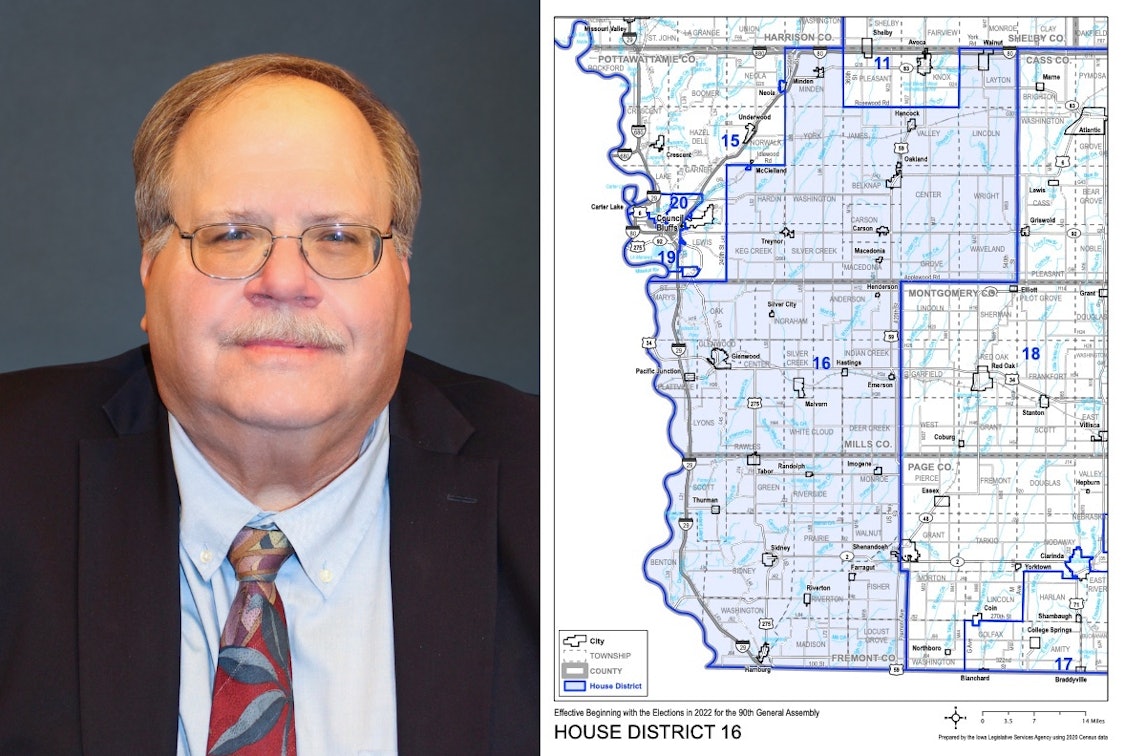
Sieck did not face a GOP primary challenger in 2022 despite being known as a voucher skeptic. He doesn’t chair any House committees but is vice chair of Economic Growth and Technology and also serves on Agriculture, Labor and Workforce, and Transportation.
Brent Siegrist was the only member of the Republican leadership team to vote against the voucher bill. He served in the Iowa House for eighteen years, rising to the positions of majority leader and speaker before retiring in 2002 to run for Congress. He returned to the legislature following the 2020 election and now represents House district 19, covering part of Council Bluffs in Pottawattamie County.
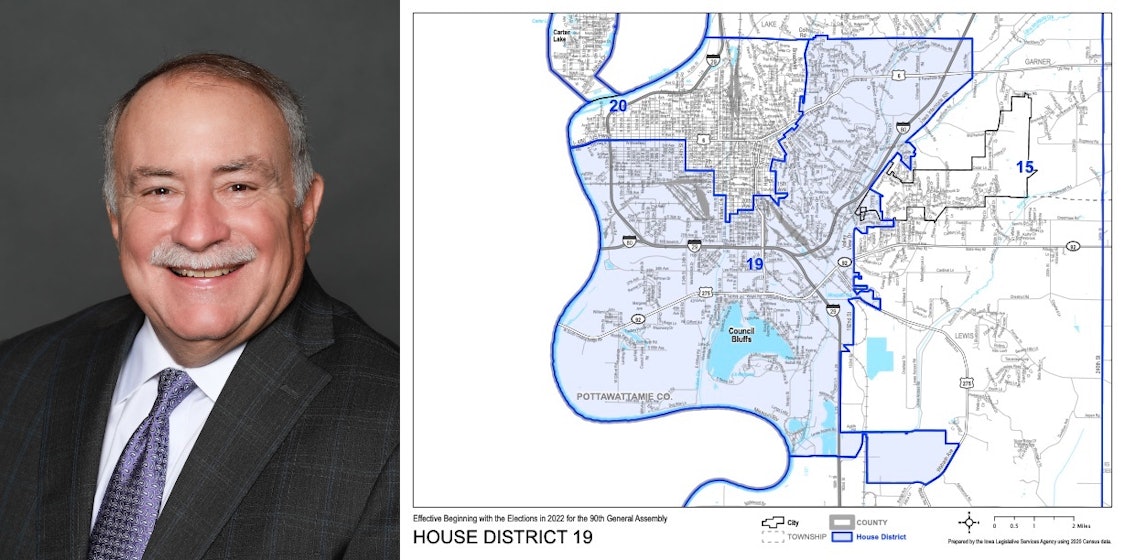
Siegrist failed to qualify for the 2022 GOP primary ballot and was fortunate that no other Republican filed for the seat before the primary. That allowed the incumbent to win a district nominating convention last July.
Although there are long-established religious schools in the Council Bluffs area, Siegrist has opposed previous school choice bills as well as this one.
In addition to serving as an assistant majority leader, Siegrist chairs the House Administration and Rules Committee. He also serves on the State Government, Transportation, and Ways and Means committees, as well as the Education Appropriations subcommittee.
IOWA SENATE: THREE REPUBLICANS VOTED NO
The bill’s passage in the upper chamber was always a foregone conclusion. Republicans had moved school choice bills through the Senate before with no trouble, and this year’s majority is larger (34 to 16).
Nevertheless, three GOP senators were willing to stick their necks out and vote against the governor’s top priority.
Lynn Evans was just elected for the first time in 2022 in Senate district 3, covering Osceola, O’Brien, and Buena Vista counties, plus large areas in Clay and Cherokee counties. There are several private schools in his district, though none are located in in Osceola or Cherokee.
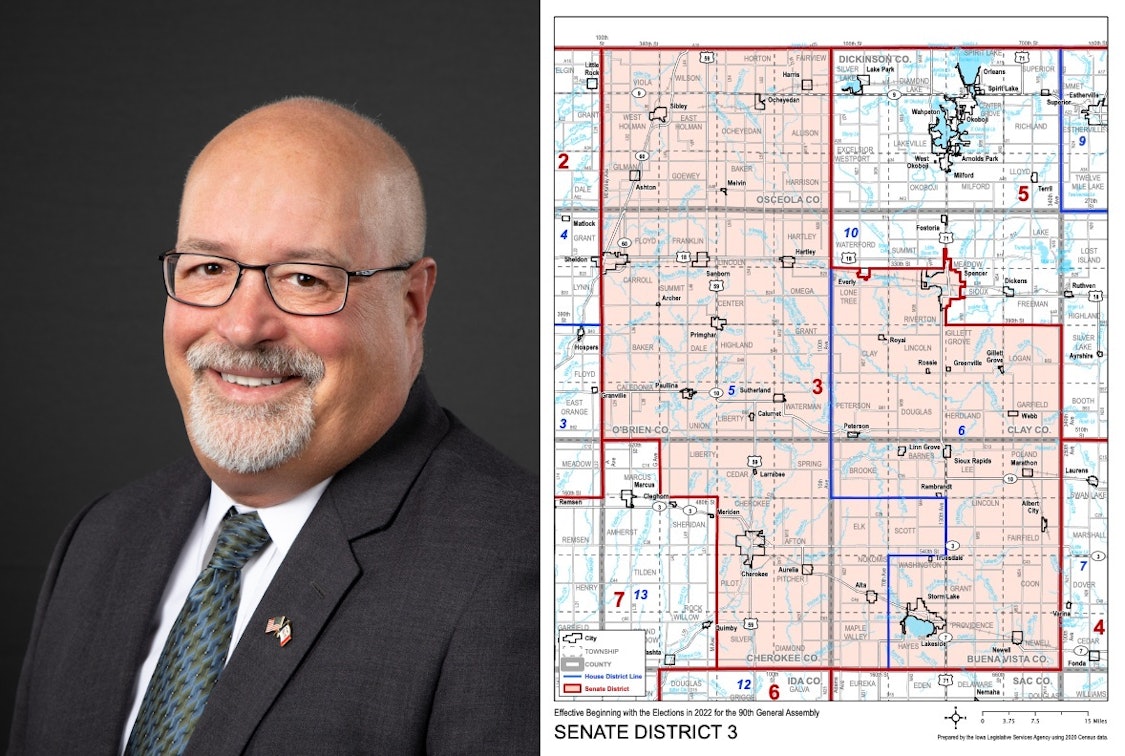
Evans defeated a former Trump administration official in the 2022 primary for this open seat. I didn’t see any public comments from him about school choice, so I didn’t expect him to vote against the bill. He voted with fellow Republicans to move the bill out of the Senate Education Committee last week.
On the other hand, Evans is a former superintendent for several school districts in northwest Iowa. In that sense, it’s not surprising he would sympathize with public school officials who fear this policy will accelerate enrollment declines in communities that are already losing population.
Evans doesn’t hold a leadership role on any Iowa Senate committees. He serves on the Education, Ethics, Health and Human Services, Judiciary, and Natural Resources and Environment panels.
UPDATE: Evans told the Sioux City Journal’s Jared McNett that he was concerned some students would not be able to access private schools.
“If you want true parent choice, a student shouldn’t be discriminated against based on learning needs,” he said. “I really needed that language. In the bill.” […]
Evans repeatedly emphasized he likes the idea of educational choice and thinks the move could make public schools more competitive, he just worries about the matter of students with special needs.
“I just don’t want a parent to think that they have parent choice and then they’re turned away at the schoolhouse door,” Evans said. […]
“I didn’t have anybody really twisting my arm or pushing me to vote differently,” he said.
Charlie McClintock was known to oppose previous versions of the voucher bill in the Iowa House, where he served for two years before being elected to Iowa Senate district 42 in November. He easily won the general election but prevailed in a three-way primary by just two votes after a recount.
McClintock’s district covers most of Benton County and most of rural Linn County. Many of his constituents live relatively close to a private school.
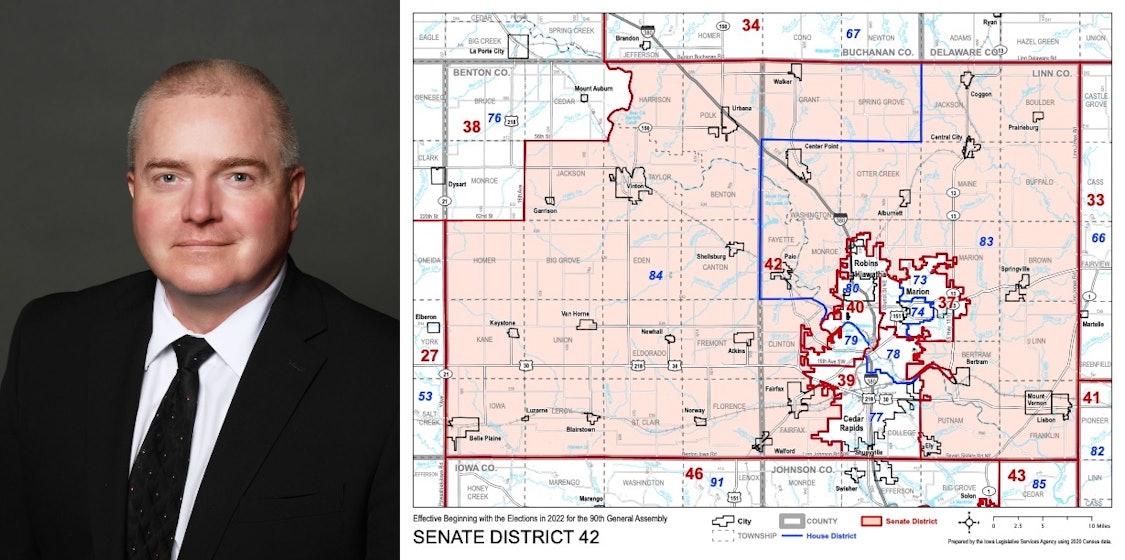
McClintock was the only Senate Republican to vote against the floor manager’s amendment during the afternoon of January 23. That procedural maneuver prevented Democrats from offering any other amendments when the Senate debated the voucher bill later in the evening.
McClintock was named vice chair of the Senate Workforce Committee and also serves on Agriculture, State Government, and Veterans Affairs.
Tom Shipley was first elected in 2014 and represents Senate district 9, covering Cass, Montgomery, Adams, Page, Taylor, and Ringgold counties, plus most of Union County. No one ran against him in the 2022 primary.
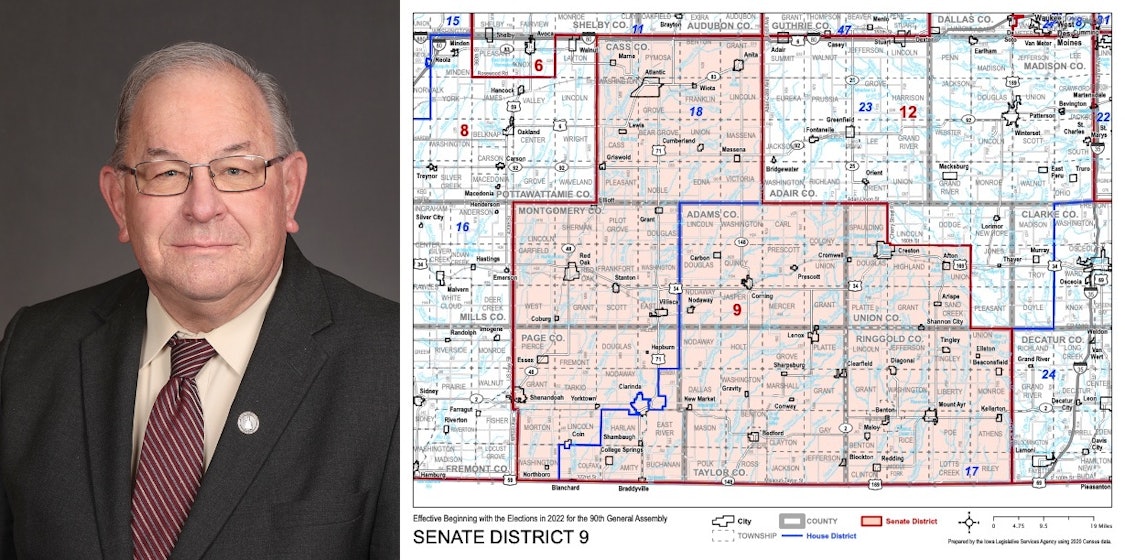
Shipley hadn’t voted against any previous school choice bill, to my knowledge, so he wasn’t on my radar as a possible opponent of the governor’s bill. On the other hand, most of the counties he represents have no private schools. He was also a public school teacher for a few years during the 1970s, before spending most of his career in agriculture.
Shipley chairs the Senate Ethics Committee and is vice chair on Natural Resources and Environment. He also serves on the Agriculture, Judiciary, Local Government, and Transportation committees.
Top image: Iowa state capitol reflected in the Wallace building. Photograph by Mike McCarville, available via Shutterstock.

